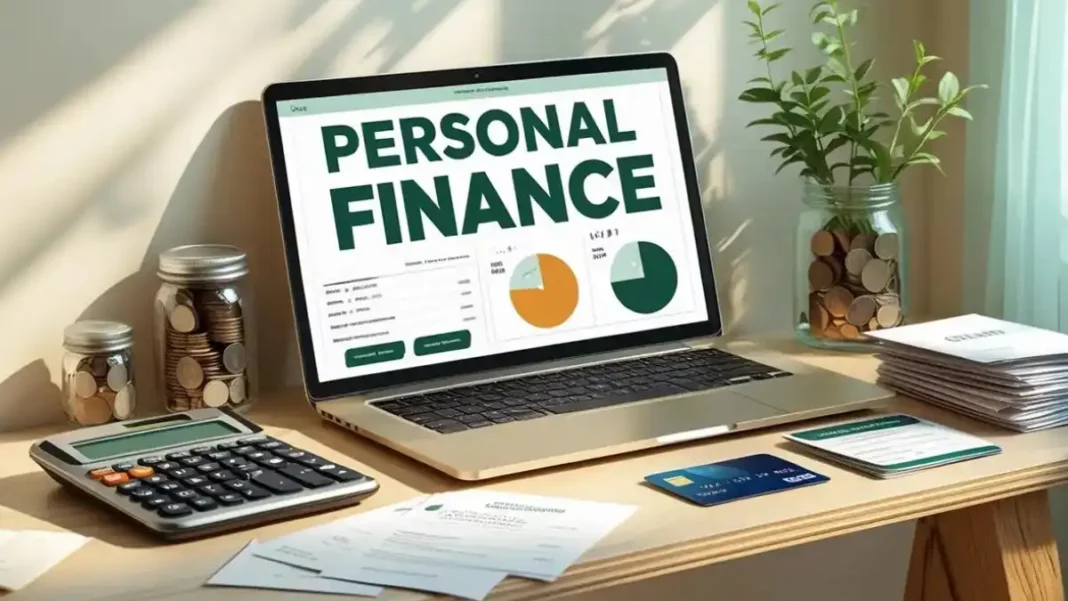Personal finance is essential for everyone seeking financial stability and independence. Whether you’re just starting out in your profession, managing your first paycheck, or planning for the future, understanding personal finance is likely to make a significant difference in your life. In order to get the most out of your money, you must establish solid habits early on, set realistic goals and adhere to tried-and-true budgeting and financial planning techniques.
Why Personal Finance Matters in Your 20s
Your 20s are a definitely transformative time in your life, when you move out on your own, start earning money and begin to shape your future. Establishing good personal finance habits during this decade is likely to lay a solid basis for decades to come. In order to avoid frequent traps and position yourself for success, match your financial decisions with your principles and long-term goals.
Core Pillars of Personal Finance
Personal finance is founded on five important elements that are usually universal, regardless of age or income:
- Income: Understanding your sources of income and determining how to allocate them is the first step in personal finance.
- Expenses: Tracking and managing your costs helps you live within your means and prevent excessive debt.
- Savings: Setting aside a portion of your salary for emergencies and future objectives is critical for financial security.
- Investing: Increasing your wealth through investments is likely to safeguard your financial future.
- Protection: Using insurance and data security to protect your assets and income is an important part of personal finance.
Budgeting Tips for Effective Personal Finance
Budgeting is the foundation of personal finance. In order to manage your money properly, try these practical budgeting tips:
- Track Your Spending: Begin by keeping track of all of your monthly expenses. This allows you to somewhat better understand where your money goes and also find areas for improvement.
- Create a Value-Based Budget: Match your budget to your particular values and priorities. First, allocate dollars for necessities, and then focus the remainder of your income on what is most important to you.
- Automate Savings: Make automatic transfers to your savings or investing accounts. This ensures that you always save, even if you’re inclined to spend.
- Create an Emergency Fund: Start by saving at least $1,000, then progressively expand it to cover three to six months of living expenses.
- Review and Adjust: Personal finances are not static. Review your budget on a regular basis and make adjustments if your circumstances or goals change.
Financial Planning: Steps to Long-Term Success
Financial planning is primarily concerned with establishing specific goals and devising concrete measures to accomplish them. In order to create a good personal finance strategy, consider the following factors:
- Visualize Your Future: Consider your desired lifestyle, job and financial objectives. Use this vision in order to make your financial decisions informed.
- Prioritize Debt Repayment: Pay off high-interest bills first, particularly credit cards. This is quite critical for increasing cash flow and enhancing your credit score.
- Develop Credit Responsibly: Use credit cards sparingly, pay off accounts in full, and prevent needless applications. A good credit score is likely to aid with future loans and possibilities.
- Invest Early: Begin contributing to retirement accounts like a 401(k) or IRA as soon as possible. Compounding has a huge impact over time.
- Protect Your Assets: In order to preserve your financial well-being, get necessary insurance plans and secure your online data.
Personal Wealth Management and Lifestyle Choices
Personal finance is more than simply statistics; it is about matching your money to your values and lifestyle. In your twenties, you may have to choose between renting and buying a home, furthering your education, or investing in yourself through skills and networking. In order to make the best judgments, analyze the financial ramifications of each option and how they fit into your long-term plan.
Personal Finance for the Digital Age
As technology advances, Private Finance tools will most certainly become more accessible and user-friendly. Budgeting, investment and credit monitoring apps are very popular among young adults. In order to keep track of your finances, use these digital apps to automate savings, track spending and create payment and goal reminders.
Investing in Yourself: The Ultimate Personal Finance Strategy
One of the most valuable investments you can make is in yourself. Personal finance is about more than just money; it’s about developing skills, extending your network and learning knowledge that will almost certainly boost your earning potential and confidence. In order to thrive, prioritize lifelong learning and personal development.
Conclusion: Personal Finance
Personal finance is critical to be able to attain your goals and create a stable future. You are more likely to achieve financial freedom and peace of mind if you start early, set clear goals and adopt tried-and-true budgeting and financial planning practices. Remember that Personal Budgeting is a lifelong process; adjust as your circumstances change, stay informed and invest in yourself along the way.
Frequently Asked Questions: Personal Finance
Q1: Why is personal finance important in your 20s?
A: Personal finance is highly crucial in your 20s since habits acquired early are more likely to endure a lifetime and set the basis for long-term financial security.
Q2: How can I improve my credit score?
A: Pay off debts on time, minimize unnecessary credit applications and maintain a low credit use rate. Responsible credit usage is most likely to improve your score.
Q3: What insurance do I need in my 20s?
A: At the very least, consider health, auto and renters insurance. These are very important for securing your financial future.


